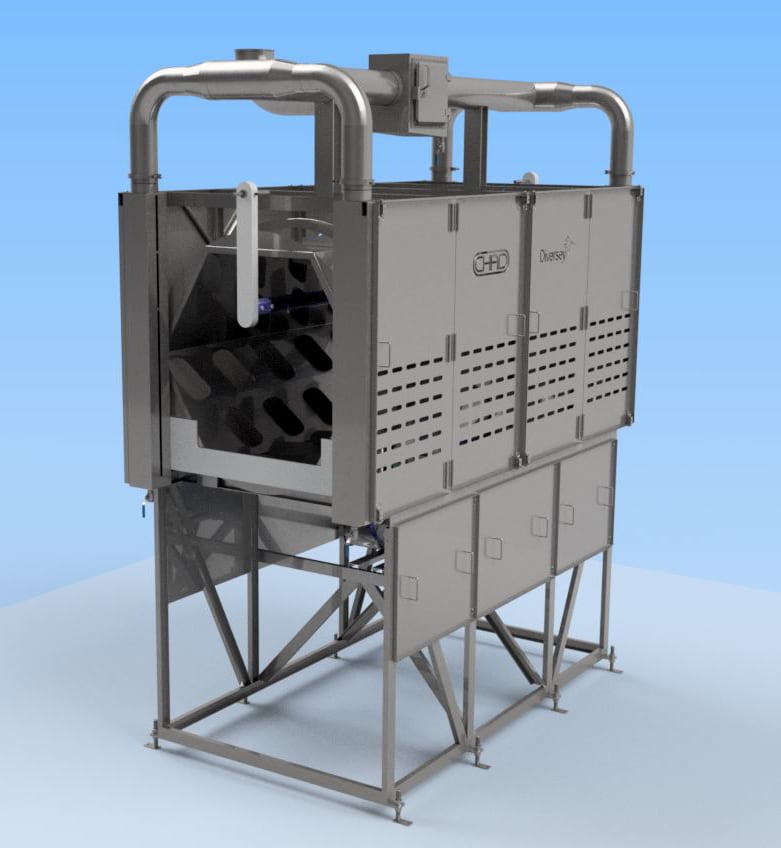As some processors begin to resume operations after Hurricane Florence, others will face significant challenges before reopening. In addition to the flooding, downed trees, power outages and other devastation everyone is facing in the affected regions, food producers and processors will encounter additional challenges.
Flood water is unpleasant. It’s a mixture of mud, sewage, bacteria, debris and toxins that were picked up from effluent lagoons, mine waste dumps, chemical spills and anything else in the flooded areas. Crops in fields that were flooded are most likely unfit for harvest and food use and processing facilities may have been contaminated. The path to recovery will be long and difficult.
How floods impact food growers
Growers are responsible for assuring the safety of flood-affected food crops for human consumption. The USDA Center for Food Safety and Applied Nutrition has several resources to help growers whose crops have been impacted by severe weather conditions. And producers can refer to the FDA’s Guidance for Industry: Evaluating the Safety of Flood-affected Food Crops for Human Consumption as they assess potential damage to their food crops.
According to the FDA:
- If the edible portion of a crop is exposed to contaminated flood waters, it is considered “adulterated” under the Federal, Food, Drug and Cosmetic Act and should not enter the human food supply. This applies to all food crops including underground crops (e.g. peanuts, potatoes).
- If crops that were in or near flooded areas but flood waters did NOT contact the edible portions of the crops, the growers should evaluate the safety of the crops for human consumption on a case-by-case basis for possible food safety concerns. Sometimes, crops that have been harvested and then subsequently deemed unsuitable for human use can be salvaged for animal food. For more information please see CVM Update: Resources for Animal Food Producers in Flooded Areas.
The FDA encourages growers to work with state regulators and local FDA offices to assess their unique situations and to take into consideration all possible types and routes of contamination from flood waters in determining whether a particular crop is adulterated.
How floods impact food processors
In a flooded food processing facility, flood water and everything that was carried with it may have penetrated walls, and contaminated processing equipment. Water-damaged walls will likely need replaced and processing equipment should be completely disassembled for intensive cleaning before processing resumes.
If a facility was not flooded, but was impacted by other factors such as loss of electrical power, remedial action will be needed. Raw materials and finished goods in refrigerated storage should be disposed of, and storage areas and processing rooms should undergo an intensified deep remedial cleaning process. Loss of temperature control in a refrigerated facility will have removed temperature barriers that were retarding the growth of bacteria in the facility. For example, ambient temperatures in Charlotte, North Carolina are in the 80s with high humidity – prime conditions for the growth of bacteria and molds.
How Birko can help your facility
Birko cleaning products and quat-based sanitizers are effective at deep cleaning equipment as a part of a facility’s recovery program. I also recommend the Decon 7 chemistry as an essential tool. Decon 7 was initially developed as a front-line decontamination agent for use following man-made or natural contamination events. The combination of the thick foam and fogging application is an excellent remedial treatment for impacted facilities.
You can contact me, or any of our Technical Sales Representatives, to learn more about maintaining food safety after a natural disaster.
Additional information is available at:
- Guidance for Industry: Evaluating the Safety of Flood-affected Food Crops for Human Consumption
- Safety of Food Affected by Hurricanes, Flooding, and Power Outages
- CVM Update: Resources for Animal Food Producers in Flooded Areas
Some of this information was adapted from https://www.fda.gov/Food/NewsEvents/ConstituentUpdates/ucm620614.htm
 Elis Owens, Ph.D., Director, Technical Services, Birko, can be reached at [email protected] or (303) 289-1090.
Elis Owens, Ph.D., Director, Technical Services, Birko, can be reached at [email protected] or (303) 289-1090.








